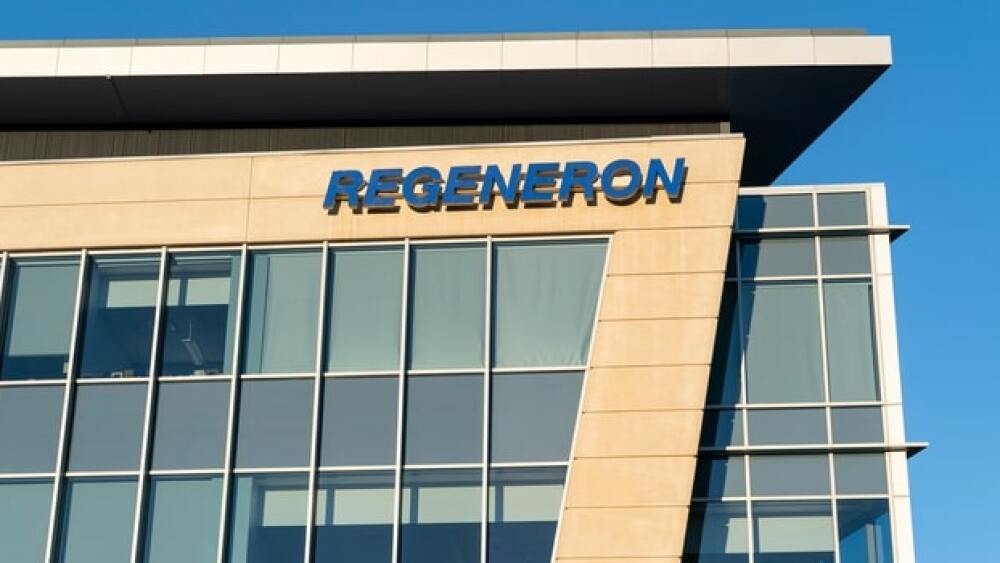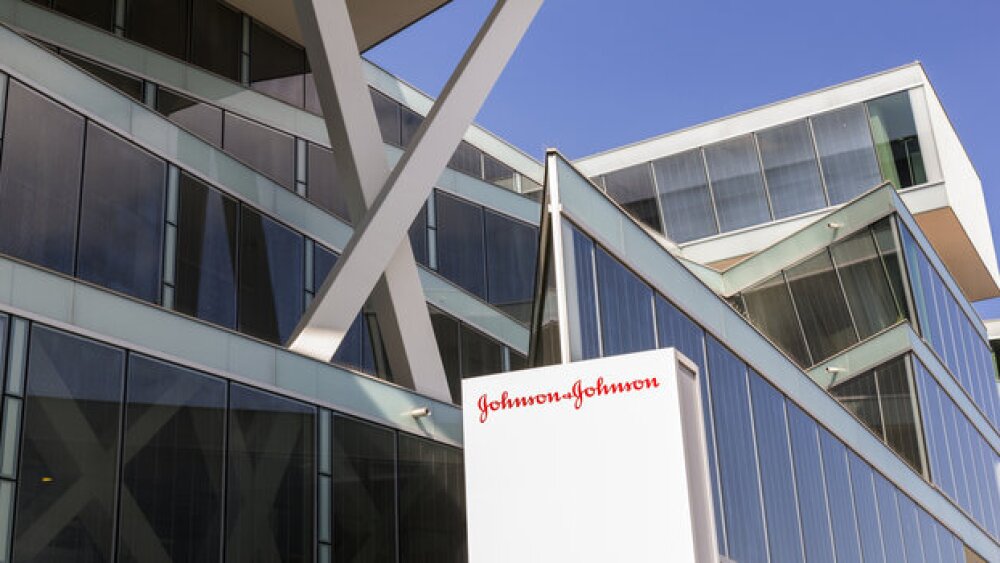While almost half of multiple myeloma patients on linvoseltamab achieved a complete response or better, all experienced adverse events and 14 patients died due to treatment-emergent AEs.
Pictured: Regeneron logo on a light brown building/Shutterstock, Lev Radin
Regeneron Pharmaceuticals is taking the latest clinical data on its bispecific antibody data for multiple myeloma to the FDA, with plans to submit a BLA before the end of the year. The pharma shared mixed results Thursday morning ahead of the American Society of Hematology’s annual meeting.
Nearly half the patients in the Phase I/II LINKER-MM1 trial achieved a complete response or better for their relapsed/refractory multiple myeloma (R/R MM) after 11 months on linvoseltamab, with a 71% objective response rate.
Despite the positive efficacy results, the study’s data on adverse events and deaths was decidedly negative. In the trial, all 117 patients treated with the 200-mg dose experienced an adverse event with 85% experiencing Grade ≥3 adverse events. The most frequently occurring AE was cytokine release syndrome (CRS)—46%. Fourteen patients, 12% of participants, died due to treatment-emergent AEs, of which 11 were due to infections.
Patients in the trial had been heavily pre-treated, all having received at least three prior lines of therapy or were triple refractory. Regeneron’s study design utilized a step-up dosing regimen to attempt to mitigate CRS.
“Multiple myeloma remains an incurable disease, in which patients endure cycles of relapse and remission, resulting in a critical need for innovative medicines,” L. Andres Sirulnik, Regeneron’s senior vice president of hematology, said in a statement. Sirulnik pointed to the deep durable response in a difficult-to-treat patient population as promising and a convenient regimen that moves patients from two-week to four-week dosing as a response is seen.
Linvoseltamab is a bispecific antibody to bridge B-cell maturation antigen (BCMA) on the cancer cells with CD3-expressing T cells to activate the immune cells’ cancer-killing power.
If approved, Regeneron’s BCMAxCD3 therapeutic won’t be the first of its kind on the market. Johnson & Johnson’s Janssen and Pfizer both have a similar medicine approved already. However, Regeneron is hopeful for that coveted “best in class” status. While yet to be compared head-to-head, overall response rates (ORR) appear to be higher for linvoseltamab.
The ORR for Pfizer’s Elrexfio, granted accelerated approval in August 2023, was 58% for the 97 patients in the trial. A real-world study of R/R MM patients reported in September 2023 for Janssen’s Tecvayli, the first to be approved for this class in 2022, delivered 53.6% ORR.
Regeneron’s linvoseltamab has been granted Fast Track Designation for MM by the FDA.
Kate Goodwin is a freelance life science writer based in Des Moines, Iowa. She can be reached at kate.goodwin@biospace.com and on LinkedIn.






